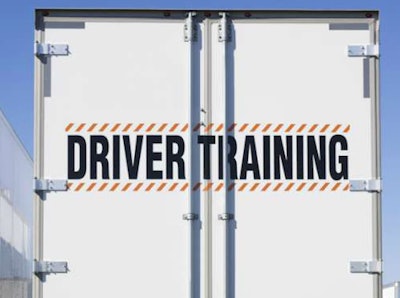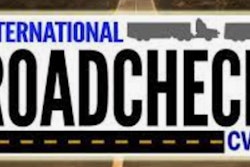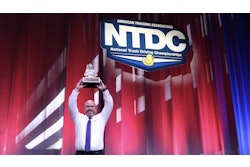
Legislation introduced in the U.S. Senate recently would exempt some drivers from the provisions of the Entry Level Driver Training Act (ELDT), which took effect in February of this year.
Sponsored by Sen. Kevin Cramer (R-North Dakota) and Sen. Mike Rounds (R-South Dakota), the Trucking Regulations Unduly Constricting Known Service-providers (TRUCKS) Act, would allow states to issue a new “Small Business Restricted CDL” so ELDT requirements would not apply to businesses with nine CDLs or less. The legislation also would allow states to exempt employees of agriculture-related industries, school districts, and local units of government from ELDT provisions.
The bill also ensures drivers obtaining a CDL without completing the ELDT process could not switch to a larger company using a Small Business Restricted CDL.
“With the current supply chain issues and shortage of truck drivers nationwide at a time of tremendous demand, the last thing the transportation industry needs is more overbearing, bureaucratic red tape placed on them by the Biden Administration,” said Senator Cramer. “The TRUCKS Act allows states to exempt certain drivers from new ELDT requirements and provide regulatory relief to small trucking businesses ensuring we have drivers on the road to keep interstate commerce moving.”
The rule creating the ELDT was finalized in early 2017, providing a three-year window before it took effect to allow FMCSA, trainers, fleets, and states time to implement the necessary systems and procedures. A delay in 2020 gave stakeholders two additional years to prepare
Required training in the rule – both classroom and behind-the-wheel driving – includes the basic operation of a vehicle, vehicle control systems and dashboard instruments, pre- and post-trip inspections, backing and docking, distracted driving, roadside inspections, hours of service, driver-whistleblower protections and procedures, and more.
The rule requires training to be completed by an FMCSA-approved provider from the Training Provider Registry established by the rule.
One major trucking advocacy organization has weighed in on the proposed legislation.
"TCA has always supported competency-based training requirements for entry-level drivers, which should apply to all prospective drivers who have not yet obtained and are required to possess a commercial driver’s license (CDL) to operate in interstate commerce," said David Heller, senior vice president of Safety and Government Affairs at TCA. "The current rule that we have been operating with since February 7, has been designed to accommodate fleets of all sizes by prescribing the competency-based curriculum that is practical for training institutions of all sizes, including an independent contractor that is seeking to train a family member to enter the business."












